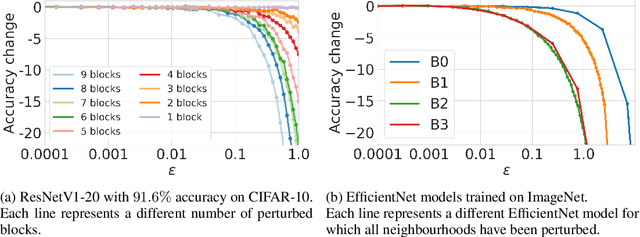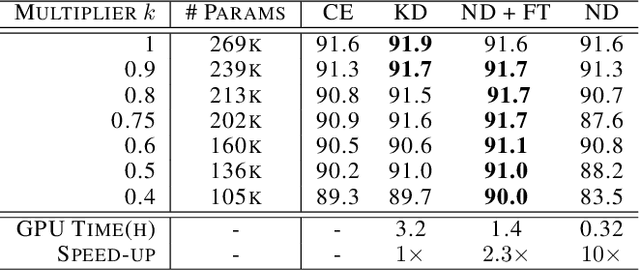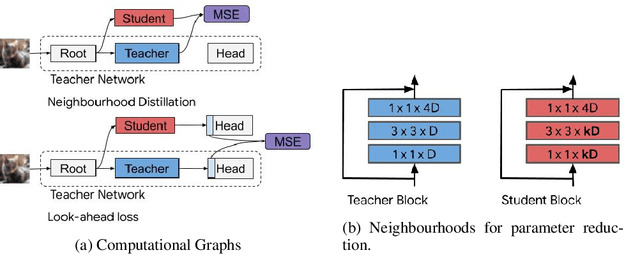Laëtitia Shao
Neighbourhood Distillation: On the benefits of non end-to-end distillation
Oct 08, 2020



Abstract:End-to-end training with back propagation is the standard method for training deep neural networks. However, as networks become deeper and bigger, end-to-end training becomes more challenging: highly non-convex models gets stuck easily in local optima, gradients signals are prone to vanish or explode during back-propagation, training requires computational resources and time. In this work, we propose to break away from the end-to-end paradigm in the context of Knowledge Distillation. Instead of distilling a model end-to-end, we propose to split it into smaller sub-networks - also called neighbourhoods - that are then trained independently. We empirically show that distilling networks in a non end-to-end fashion can be beneficial in a diverse range of use cases. First, we show that it speeds up Knowledge Distillation by exploiting parallelism and training on smaller networks. Second, we show that independently distilled neighbourhoods may be efficiently re-used for Neural Architecture Search. Finally, because smaller networks model simpler functions, we show that they are easier to train with synthetic data than their deeper counterparts.
Understanding Classifier Mistakes with Generative Models
Oct 05, 2020



Abstract:Although deep neural networks are effective on supervised learning tasks, they have been shown to be brittle. They are prone to overfitting on their training distribution and are easily fooled by small adversarial perturbations. In this paper, we leverage generative models to identify and characterize instances where classifiers fail to generalize. We propose a generative model of the features extracted by a classifier, and show using rigorous hypothesis testing that errors tend to occur when features are assigned low-probability by our model. From this observation, we develop a detection criteria for samples on which a classifier is likely to fail at test time. In particular, we test against three different sources of classification failures: mistakes made on the test set due to poor model generalization, adversarial samples and out-of-distribution samples. Our approach is agnostic to class labels from the training set which makes it applicable to models trained in a semi-supervised way.
 Add to Chrome
Add to Chrome Add to Firefox
Add to Firefox Add to Edge
Add to Edge